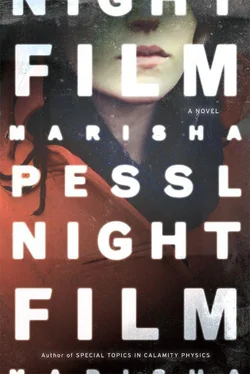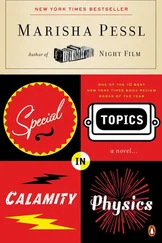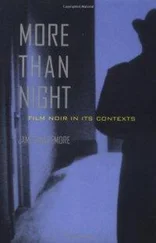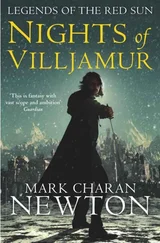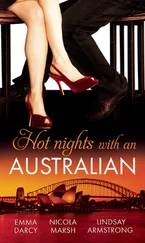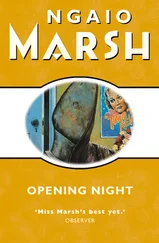I made a note of it, feeling an insidious wave of dread as I did, folding the scrap of paper into my pocket.
“Thank you,” I said to Beckman — abruptly he appeared to be in too ruminating a mood to speak. “I’ll explain when I have more time,” I added, starting down the hall.
“McGrath.”
I stopped, turning. He was staring after me.
“I need to give you a last bit of advice in the off chance this rather extraordinary and enviable situation in which you find yourself is actually true —that somehow you’ve fallen deep down into a Cordova story.”
I stared back at him.
“Be the good guy, ” he said.
“How do I know I’m the good guy?”
He pointed at me, nodding. “A very wise question. You don’t. Most bad guys think they’re good. But there are a few signifiers. You’ll be miserable. You’ll be hated. You’ll fumble around in the dark, alone and confused. You’ll have little insight as to the true nature of things, not until the very last minute, and only if you have the stamina and the madness to go to the very, very end. But most importantly — and critically —you will act without regard for yourself. You’ll be motivated by something that has nothing to do with the ego. You’ll do it for justice. For grace. For love. Those large rather heroic qualities only the good have the strength to carry on their shoulders. And you’ll listen. ”
He licked his lips again, frowning.
“ If you’re the good guy, you just might survive, McGrath. But of course, there are no guarantees with Cordova.”
“I understand.”
“Good luck to you,” he said, then spun quickly on his heel and, without looking at me again, vanished back inside his classroom.
I cased the townhouse on East Seventy-first Street — the one Hopper had broken into — for the next eleven days. I returned home to fitfully sleep, of course, leaving a small thread clandestinely strung across the base of the front door, secured with a microscopic piece of tacking putty, so I’d know if anyone entered while I was away.
But the thread remained intact.
At this point, all that I accepted as the truth was that somehow I’d been artfully set up, beginning, I sensed, with Ashley appearing that night at the Reservoir. But why or how it had been planned and executed, whether or not the witnesses we’d tracked down had even been telling the truth about Ashley’s behavior, what was real, what wasn’t —I didn’t know anymore. Could something be real when all evidence of it was gone? Was something categorically true if it lived on only in your head, same as your dreams?
Cordova, in his life and art, had blended fantasy and reality, and so he seemed to be flagrantly showing off to me, much to my chagrin, such an intermingling of truth and fiction. Perhaps it was his way of underscoring for me not just his superiority — that he was beyond unmasking, that I’d never catch him — but that, in some cases, the biggest truth about a family, about a person’s life, was the fantasy and it was only a simple man’s mind that craved one being tidily distinguished from the other.
Hopper and Nora, shortly after I’d interrupted Beckman’s lecture, had both called me back within a few hours of each other, worriedly asking if I was all right. It seemed, then, that the two of them had not disappeared like all the others, but were only preoccupied with getting on with their lives. Nora was in the midst of practicing Al Pacino’s opening monologue from Glengarry Glen Ross, which she was planning to do for her Hamlette audition at the Flea Theater. My conversation with Hopper, though civil, was stilted, part of which was because we were constantly interrupted by his incoming calls and he hadn’t exactly forgiven me for my choice to keep stripping away the truth about Ashley. They both asked me if I was still working on the investigation, but didn’t seem to want to hear the answer. I sensed that Ashley was something in their pasts now, a dusky beautiful day they wanted to remember in a certain moody light, with a certain haunting theme song, and they didn’t want to hear another experience that would tarnish this image. I hung up with both of them, mentioning nothing about the disappearances of every one of our witnesses or anything about the Murad cigarettes, the Cordova trademarks that seemed to have peppered the real-life investigation.
There was one crucial person, however, who remained exactly where I’d found her.
I went back to Enchantments, stepping unannounced through the black curtain into the back room, expecting to see someone new sitting at the round table who’d duly inform me Cleo had moved to the Louisiana bayou.
But to my shock — and relief — Cleo was there. She was surprised to see me, and after a few awkward pleasantries, which involved me asking her if she knew Cordova (“That director? No,” she answered, visibly confused) or ate steak tartare (“I’m vegan,” she said blankly), also checking the red bulb in the light overhanging the table to see if by chance it was manufactured by Phil Lumen (it was GE) — I thanked her and swiftly left, my mind obsessively replaying the last time I’d seen her, when she’d showed me how the leviathan’s tail moved with a mind of its own.
That had been real.
It couldn’t be explained away by my having ingested Mad Seeds. It was a hint of the reality of black magic, of dark and invisible fractures cutting through our ordinary world.
Wasn’t it? Thinking all of this over for days, finally I received the phone call I’d been waiting for.
“McGrath. Sharon Falcone.”
I felt uneasy hearing her voice. Something told me I was not going to like what she said about the stained shirt I’d given her and the bones.
“We were able to take a look at what you gave me.”
“ And? ”
“There’s nothing there.”
She paused, as if sensing I’d be distressed by the news.
“There’s no blood, animal or otherwise, in the sample. What they found was trace glucose, maltose, some oligosaccharides.”
“What’s that?”
“Corn syrup. It might have been soda, some canned or bottled beverage that spilled on the shirt. How it was stored over the years must have created the stiffness. But it’s such a degraded sample, it’s hard to say.”
“There’s absolutely no chance it’s human blood?”
“No chance.”
I closed my eyes. Corn syrup.
“And the bones?” I asked.
“They were traced to family Ursidae, probably Ursus Americanus. ”
“What’s that?”
“A black bear. It’s probably the foot of a cub.”
A black bear.
“You need a vacation,” Sharon said. “Leave town for a couple weeks. The city can screw with your head. Like all toxic love affairs, you need to take a break before you go back in for more pain and heartbreak.”
I had nothing to say, because it couldn’t be right. I’d been so certain, certain of the film sets, that they had contained real human suffering. It couldn’t end like this.
“You still there?” Sharon asked.
“I’m sorry to have bothered you with this,” I managed to say.
She cleared her throat. “You need to move on. I understand, believe me, how this stuff gets to you, that there’s nothing more important than finding that hidden door which will lead to the underground bunker where the truth is sitting there behind bars. But sometimes the truth just isn’t there. Even if you can smell it and hear it. Or there just isn’t a way in anymore. It’s grown over. Rocks have shifted. Shafts caved in. There’s no human way to get to it, not even with all the dynamite in the world. So you leave it at that. And you move on.”
Читать дальше
